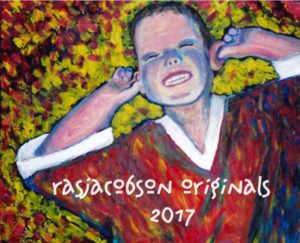children

On Thunderstorms & Children: Reflections on a Rainy May
When my son was a wee thing, still wrapped up like a burrito, every time there was a thunderstorm, I carried him outside…
Not a Tale for Children
Recently, I had to make a decision about whether or not to call Child Protective Services. The boy involved is a smart…
Shecky the Meckyl and His Technicolor Groove: My Seussian Self-Help Book
I wrote this poem three years ago when my son was going through a rough patch socially….
In Fear of Lice
My fear of lice is partially irrational because I have never had them, but I have known many families who have been afflicted, and I am smart enough to know that I never want to meet a dirty, blood-sucking louse. I have heard the tales of woe: how the damn things keep coming back even after people used creams and picked-nits and bagged favorite pillows, washed towels and linens, even threw out hair brushes, combs and expensive hair accessories. I have long, thick, curly hair and it seems like clippers would be inevitable. Like Samson, I am nothing without my hair, so every time that damn letter comes home saying someone in my child’s class has contracted lice, I feel a little sick inside. …
Growing Up Is Hard & Bullies Just Stink
For kids, I imagine sometimes life must seem more like the reality-show Survivor where there are alliances that change daily. There are secret merges. One day you are in, and the next you are on exile island, alone. Or just voted out – excommunicated, without explanation. Blindsided. My son has been negotiating these waters for a few years now. He knows he has friends; it’s just that most of them don’t currently attend his school.
Last year, when he found himself on the ground at recess, getting kicked in the nuts, he noted later, it wasn’t the being kicked hurt so much (although it did hurt) but that a person he’d thought was his friend for many years stood by and watched it happen. That betrayal hurt him much more. He felt – and still feels – that if that friend had intervened with a “Quit it,” or a “Leave him alone,” that somehow it wouldn’t have been so bad because he would have known he had that one person. That one friend….
What Would You Do?
Your child brings home a handout from school that is riddled with more than quite a few teacher errors (misspellings, grammar etc.).
In fantasies, what would you like to say or do? What do you do in reality?…
Can You Leave Your Kids Alone?
My mother left me alone in our house when I was in 4th grade. She would sometimes make a quick run to the grocery store and I would watch (torture?) my younger brother for about an hour before she came back home with the goods. By 6th grade, I was making pretty good money as a regular babysitter to several neighborhood families. (When I say “good money,” I mean I was making $1/hour to watch up to 3 children – and sometimes even a dog with a bladder problem.) I would typically arrive at 6 pm, make the kids dinner, entertain them, feed the dog, help them get into pajamas and brush their teeth, get everyone into bed and have them sound asleep by the time the parents came home around 11 pm or so! Pretty responsible for an 11-12 year old, right?
Last year, my husband and I started leaving our (then) 9-year old son alone in the house for little chunks of time. We didn’t leave him for very long. Maybe hubby and I wanted to take a walk around the block after dinner. That kind of thing. Since things went so well, we gave our li’l monkey greater independence this year. Sometimes he comes home from school, and I’m not home. He knows how to get in, how to make his own snack, knows to get his homework done. He might (or might not) practice his piano. He knows not to let strangers in the house. He knows what to say if someone calls on the phone. I’ve been feeling mighty good about m’boy who has morphed into a pretty confident and competent little person.
That said, I’ve been catching a little grief from people who seem to think that age 10 is simply too young to leave a person “unattended” for any length of time….
"Just-a-Minute" Syndrome: Have We Caused It?
We often think that the grounding or the taking away of the hand-held video-game or the cell phone is uncomfortable enough to be a deterrent for the child, but really, it’s uncomfortable for us. We want to teach our kids the right way to live, but how far out of our way are we willing to go? Not far enough. We are slow to react to bad behavior because it’s disappointing for dad to come home to a child who’s unavailable, banished to her room; because – without a cellphone – it’s inconvenient for us to be unable to call the kid to tell him you’ll be late at pick-up; and, let’s be honest, it can be distracting to have one’s pre-teen PSP-less and yammering while you’re trying to clean, cook, manage. Setting consistent limits for our kids means parents have to suffer the consequences, too. We have to be willing to live with, and be strong with, whatever punishment we mete out….